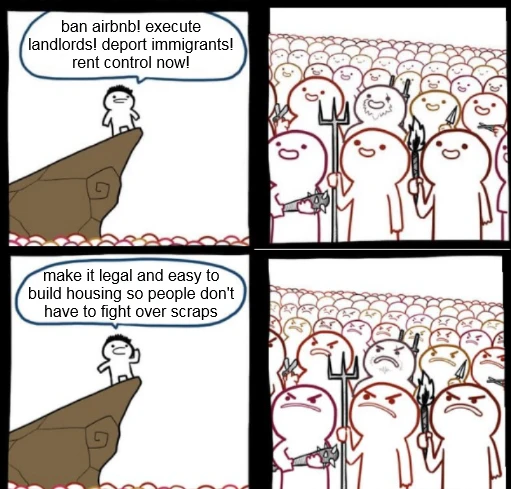this post was submitted on 26 Oct 2024
275 points (81.9% liked)
Political Memes
5390 readers
3673 users here now
Welcome to politcal memes!
These are our rules:
Be civil
Jokes are okay, but don’t intentionally harass or disturb any member of our community. Sexism, racism and bigotry are not allowed. Good faith argumentation only. No posts discouraging people to vote or shaming people for voting.
No misinformation
Don’t post any intentional misinformation. When asked by mods, provide sources for any claims you make.
Posts should be memes
Random pictures do not qualify as memes. Relevance to politics is required.
No bots, spam or self-promotion
Follow instance rules, ask for your bot to be allowed on this community.
founded 1 year ago
MODERATORS
you are viewing a single comment's thread
view the rest of the comments
view the rest of the comments

I feel like you're taking very much the wrong implication from that statement then. Again, I can't seem to see any meaningful number of these people actively advocating against building more housing. That doesn't seem to be a position that anyone seriously takes. What is being said is that we clearly have capacity that is not being properly utilized. And we're both clearly in agreement as to why that's the case.
I think it's important to remember that when people are pushing back on a position generally held in bad faith (e.g. "The only solution to our housing crisis is to build more housing", a framing that is basically designed to protect the wealthy and ultimately maintain the status quo), they're going to frame their own arguments against the position they're pushing back on. They're not laying out an election platform. They're not going to take the time to establish the specific nuances of their position for every possible context and audience. If you were to ask that same person "Do you think we should never build any more housing, ever" the percentage that are going to say "Yes" is going to be a rounding error. You have to read people's arguments in the context in which they are given.